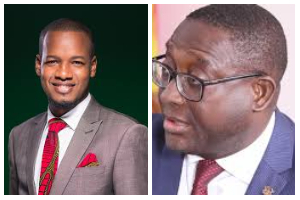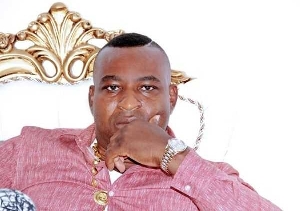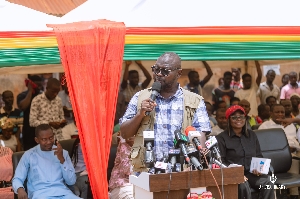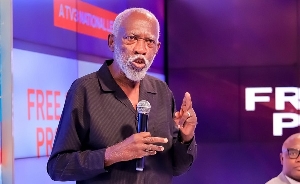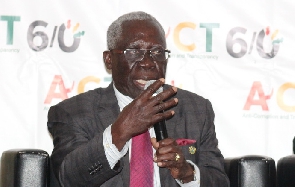Growing up as a little boy, I had this boundless love for books. My elder brother had a stockpile of books in his room and most often you’ll find me skimming through these books, sometimes without reading them but just admiring the colourful pictures in them. These books were mostly by foreign authors.
The few African literature books were just too complex for my standard. I could barely read them because the level of English was too difficult for a primary school pupil to comprehend. In addition, they barely came with elaborate pictures like the foreign ones.
These books including children’s age-appropriate books my parents bought for me all had foreign characters. They were mostly about white children playing in the snow, eating apples, wearing winter clothes, playing with a white doll or playing with teddy bears.
So it was natural that when I started drawing and scribbling a few words of my own, all I could think of was snow, apples, white dolls etc. Then, apple was my favourite fruit. Never mind I hadn’t tasted an apple fruit or seen an apple tree.
These ‘whiteman’ books gave me an orientation that the whiteman is the standard for a correct human being.
I can remember some white volunteers who came to work in a hospital near my school. Whenever school closed for the day, my friends and I will run to the hospital just to catch a glimpse of the white guests. We will admire them and wish we had a white skin.
My admiration for the white skin continued to grow until I entered senior high school.
At the senior high school, I could now read African literature books such as Chinua Achebe's Things Fall Apart, Ola Rotimi’s The Gods Are Not To Blame, among others. These books stirred my imagination and ignited some consciousness about myself.
The reason being that they were uniquely African and the stories they told were intricately woven to reflect my everyday experience and tales I have heard from my father.
For instance, whenever I read, Things Fall Apart, I could see my father in the lead character Okonkwo. I could also see my mum, neighbours or even my siblings in the many other characters.
Obiageli balancing her pot of water on her head while having her arms folded and swaying her waist like a grown up young lady reminded me of my little sister.
Okonkwo’s fiery temper and love of proverbs and tales of the past reminded me of my father.
My father is an excellent storyteller and growing up we would often gather around him during his free period and he will tell us stories about the adventures of his fathers and forefathers and some of the things he experienced while growing up. Stories about bravery, spirituality, etc. I’d often stare at him intently and hang on to his every word as he told us such stories.
There was a story he told us about how my grandfather converted to Islam which has stuck with me over the years. He narrated that my grandpa’s (his father’s) second wife had the ‘bad luck’ of her children not living for long. Whenever she had a baby, the child will die after a short period.
My father said legend held the view that my grandpa’s second wife was being tormented by what was thought to be “evil” children who deliberately die and then come back and repeat the cycle causing the family grief. To cut a long story short, my father said being the first person in the family to embrace Islam, he consulted an Imam who gave an instruction that if my grandpa will accept to orgainse an Islamic naming ceremony for the subsequent children who will be born, that ‘bad omen’ will be broken. My grandpa did that and lo and behold all the children my grandmother bore later survived.
Whenever I read Chinua Achebe’s Things Fall Apart, and get to the story of Ekwefi whose only daughter Ezinma was told to be Ogbanje, one of those children who when they died, entered their mother's wombs to be born again, it takes me back to my father’s story.
So these African literature served as a mental shift of my perception about the world and myself.
The identity clash I suffered growing up as a young African is what I think is wrong with Africa. We seem to have been brainwashed well enough to believe that everything African is bad or not good enough.
Our children go to school and the first thing they’re taught is “A for Apple” even though those who teach them these things themselves perhaps have never seen an apple tree apart from what Google tells them.
We have allowed ourselves to be westernised to the extent that we don’t even take time to question foreign ideas that are thrown at us from the western world. We subconsciously believe everything “white” must be good.
When the whiteman sailed to Africa and docked at our shores, we had practices such as Dipo and Bragoro that were the African way of encouraging and preserving chastity. We were quickly made to believe that parading young adolescents on the street bare chested or half-covered was heathen and awful.
But after many years, the whiteman will turn round and tell us women have the freedom to their bodies hence they can package their bodies anyhow they want. In fact, they can choose to have sex whenever they feel like, walk naked if they feel like it and it’s nobody’s business.
Today, the average African elite must eat Burger, Pizza and Shawarma to appear civilised or high class (Never mind many of us do not even know how to prepare them). The average Ghanaian girl wants to be taken to one of these so-called high class eatries and be given a queenly treat of fried chicken served on top of foreign perfumed rice.
Where did we go wrong as Africans? What exactly can we take pride in and beat our chest and say “yes, this is the product of our forebears, we own and love it!”
Some might say, it’s a matter of choice but what is wrong with loving our own is that it leads us into believing everything about ourselves is inferior; makes us vulnerable and it robs us of our independent thinking. The worst part is inferiority makes unable to confidently proffer customised solutions to our problems because we are always looking for an external validation in everything we do.
It looks like we are always waiting to be saved by a kind-hearted whiteman who holds the magic wand that can fix all our problems.
Our stories about ourselves always end with complaints and unmasked bitterness about how we have retrogressed over the years. But we forget that whenever we complain about an African despot, we forget the multinational foreign company that’s under-declaring it profit in our mines, our oil wells and in many other sectors.
When we think about Africa, we always forget the foreign interests who are behind numerous coups d’etats. We all remember how Gaddafi, Kwame Nkrumah was overthrown, how Patrice Lumumba, Thomas Sakara died.
When we think about the woes of the continent we often forget the unfair trade practices that is turning Africa into a dumping ground. Don't get me wrong, I am not anti-establishment neither am I “anti-westerner” but I yearn to see Africa having its voice heard in the comity of nations.
I do not want my children and grandchildren accusing me for being complicit in the stagnation of the continent. Africa needs a mind of its own, Africa needs the moral courage to believe in itself.
When foreign ideas are thrown at us, we need to evaluate them on our own terms and when they make sense we can then accept them. An example can be seen in my grandfather’s conversion story. A foreign religion was introduced to him as a solution, he did not just accept it without any questions but rather it was only when the solution worked that he was convinced to try the foreign religion.
We have our ways, we need to believe in them in order to grow the self esteem required to face other foreign ways.
God bless Africa!




